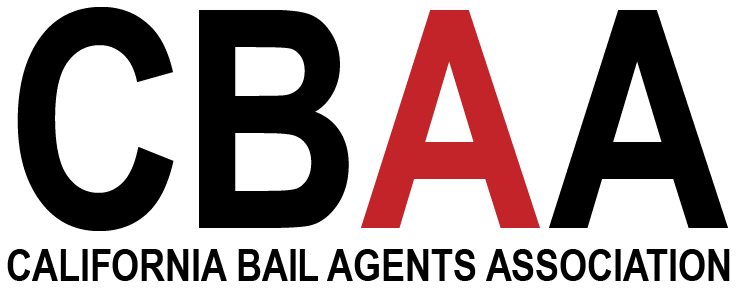What Crypto is Ideal for Tokenization?
What Crypto is Finest for Tokenization?
Tokenization has arised as one of the most transformative applications of blockchain modern technology, making it possible for the representation of real-world properties– such as genuine estate, art, or perhaps copyright– as digital tokens on a blockchain. If you have any questions relating to where and ways to make use of bitcoin-miner.org, you can contact us at our own web site. This process not just improves liquidity and availability but also presents extraordinary transparency and effectiveness to conventional markets. The selection of blockchain platform for tokenization is crucial, as it influences security, scalability, cost, and governing conformity. In this post, we discover the very best cryptocurrencies and blockchain systems for tokenization, examining their toughness and weak points.
1. Ethereum (ETH)
Ethereum is the most widely used blockchain for tokenization, thanks to its robust wise agreement capability and well established ecosystem. The ERC-20 and ERC-721 token requirements have actually become sector standards for fungible and non-fungible symbols (NFTs), respectively. Ethereum’s decentralized nature and high degree of security make it a recommended option for tokenizing properties.
Pros:
- Mature ecosystem with comprehensive designer support.
- Wide adoption and interoperability with decentralized applications (dApps).
- Solid protection and decentralization.
Disadvantages:
- High gas fees during network congestion.
- Scalability difficulties, though remedies like Ethereum 2.0 goal to address this.
2. Binance Smart Chain (BSC)
Binance Smart Chain (BSC) has acquired appeal as a more scalable and cost-effective choice to Ethereum. It sustains tokenization via the BEP-20 requirement and supplies quicker purchase times with reduced costs.
Pros:
- Low transaction costs compared to Ethereum.
- High throughput and rapid verifications.
- Compatibility with Ethereum devices and wallets.
Cons:
- Centralization problems due to fewer validators.
- Much less decentralized than Ethereum, which may affect count on.
3. Polkadot (DOT)
Polkadot is a multi-chain network that makes it possible for interoperability between different blockchains. Its Substrate structure enables for tailored blockchain production, making it a versatile choice for tokenization tasks.
Pros:
- Interoperability between blockchains.
- Scalable and modular design.
- Solid concentrate on safety and administration.
Cons:
- Relatively brand-new compared to Ethereum, with a smaller ecosystem.
- Intricacy in setting up parachains.
4. Solana (SOL)
Solana is a high-performance blockchain recognized for its speed and low deal expenses. Its Evidence of History (PoH) agreement system allows it to deal with countless purchases per second, making it appealing for tokenization.
Pros:
- Extremely fast and scalable.
- Low deal costs.
- Growing ecosystem of dApps and jobs.
Disadvantages:
- Centralization problems due to high equipment demands for validators.
- Network security issues in the past.
5. Tezos (XTZ)
Tezos is a self-amending blockchain that stresses on-chain governance and official verification of smart agreements. Its FA2 token standard sustains both fungible and non-fungible symbols, making it functional for tokenization.
Pros:
- Solid focus on protection and official confirmation.
- On-chain administration enables for smooth upgrades.
- Energy-efficient Proof of Stake (PoS) agreement.
Cons:
- Smaller programmer community compared to Ethereum.
- Lower fostering in the DeFi space.
6. Avalanche (AVAX)
Avalanche is an extremely scalable blockchain system that supports personalized subnets, allowing customized services for tokenization. Its consensus method offers near-instant finality, making it optimal for high-throughput applications.
Pros:
- High scalability and reduced latency.
- Personalized subnets for particular use cases.
- Suitable with Ethereum tools and clever agreements.
Cons:

- Reasonably new and less battle-tested than Ethereum.
- Smaller community compared to more well established platforms.
Verdict
The very best cryptocurrency for tokenization relies on the specific demands of the task. Ethereum remains the gold criterion because of its safety and security and ecosystem, while Binance Smart Chain offers an affordable alternative. Polkadot and Avalanche give interoperability and scalability, Solana masters rate, and Tezos concentrates on protection and governance. As the blockchain area evolves, more recent platforms might arise, however the current leaders each deal unique advantages for tokenizing real-world properties.
Tokenization has actually arised as one of the most transformative applications of blockchain technology, allowing the depiction of real-world possessions– such as genuine estate, art, or even intellectual home– as electronic symbols on a blockchain. The choice of blockchain platform for tokenization is vital, as it affects safety and security, scalability, price, and regulative conformity. The best cryptocurrency for tokenization depends on the certain demands of the job. Ethereum remains the gold criterion due to its safety and ecological community, while Binance Smart Chain provides an affordable choice. Polkadot and Avalanche provide interoperability and scalability, Solana excels in speed, and Tezos focuses on safety and governance.
